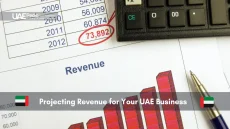Did you know over 60% of companies in the Emirates could reduce their financial burdens by simply realigning their fiscal strategies? Navigating regulations here isn’t about shortcuts—it’s about crafting a roadmap that balances growth with local requirements.
Every company’s journey starts with understanding the difference between smart financial management and risky shortcuts. Advisory firms emphasize transparency, helping businesses structure operations to meet compliance while maximizing opportunities. It’s not just about paperwork—it’s about building a foundation for long-term success.
Choosing the right business setup—whether mainland or free zone—can unlock advantages like streamlined registration and operational flexibility. Pair that with proactive risk management, and you’ve got a recipe for stability. Even initial steps, like FTA registration, become smoother with expert guidance tailored to your goals.
Key takeaways:
- Tailored approaches turn compliance into competitive advantage
- Structure choices impact everything from daily operations to long-term growth
- Local expertise bridges cultural and regulatory nuances
Key Concepts in UAE Tax Planning
Did you know that structured fiscal approaches can boost growth and shield profits from unnecessary liabilities? Let’s unpack the essentials every business needs to thrive here. Think of it as building sandcastles that withstand the tide—strong foundations matter.
Understanding UAE Corporate Tax Rates and Thresholds
Corporate tax in the Emirates isn’t one-size-fits-all. Businesses with taxable income up to AED 375,000 are subject to a 0% corporate tax rate, providing relief for small enterprises. Taxable income exceeding AED 375,000 is taxed at a 9% rate under the UAE’s corporate tax regime. It’s like a metro’s fare system: pay for the zones you use.
The UAE’s corporate tax framework applies a 0% rate on taxable income up to AED 375,000, supporting small businesses, and a 9% rate on income exceeding this threshold, aligning with international tax standards. Ref.: “Ministry of Finance (2025). Corporate Tax. Ministry of Finance – United Arab Emirates.” [!]
The Role of Transfer Pricing in Business Growth
Transfer pricing regulations ensure inter-company transactions adhere to the arm’s length principle. Imagine two siblings trading toys—prices should mirror real-world value. Following OECD guidelines ensures global standards meet local compliance. Miss this, and audits become your least favorite hobby.
Services income? Taxable. Dividends from shares? Often exempt. Clarity here is golden. We’ve seen firms redirect capital into R&D by optimizing taxable streams—turning compliance into rocket fuel for innovation.
UAE transfer pricing regulations mandate adherence to the OECD’s arm’s length principle for all intercompany transactions, ensuring that pricing reflects market conditions to prevent profit shifting. Ref.: “Federal Tax Authority (2023). Transfer Pricing Guide. Federal Tax Authority.” [!]
Strategic Approaches to Tax Planning in the UAE
Picture this: your business strategy as a chessboard where every piece follows precise rules yet creates winning patterns. The Emirates’ dynamic market rewards those who balance bold moves with careful compliance. Let’s explore how to craft a playbook that turns regulations into springboards.
Implementing Robust Compliance Frameworks
Smart entities treat risk frameworks like GPS—COSO or ISO 31000 help navigate shifting regulations. Imagine tracking expenses with AI-powered tools that flag discrepancies faster than a falcon dives. One tech startup slashed audit prep time by 40% using real-time accounting dashboards.
Structuring your operations? Think LEGO blocks. Free zones offer tax holidays, while mainland setups unlock local partnerships. Align your foundation with Federal Decree 47’s updates—like building a desert villa on bedrock instead of sand.
“read more: UAE Talent Management Strategies for Retention“
As of financial years beginning 1 January 2025, businesses with revenues exceeding AED 50 million and all Qualifying Free Zone Persons are required to maintain audited financial statements, as per Ministerial Decision No. 84 of 2025. Non-compliance may lead to penalties. Ref.: “Al Suwaidi & Company (2025). Audited Financials Now Mandatory for UAE Businesses. Al Suwaidi & Company.” [!]
Transfer Pricing: Ensuring Arm’s Length Transactions
Inter-company deals work best when they mirror arm’s-length principles—like siblings splitting dessert fairly. OECD’s transactional net margin method (TNMM) keeps pricing transparent. A Dubai logistics firm avoided penalties by benchmarking rates against regional competitors.
Investment decisions here ripple outward. Reinvest saved capital into R&D or Emiratization programs. As one CFO told us: “Compliance isn’t a cost—it’s our ticket to bid on mega-projects.” Track every dirham with cloud-based systems that sync with FTA portals.
Key Steps for Transfer Pricing Compliance:
- Map all entities and transactions quarterly
- Apply OECD-recognized methods, such as the Transactional Net Margin Method (TNMM) or Profit Split Method, for cross-border transactions
- Train teams on Ministerial Decision No. 84 of 2025 mandates audited financial statements for certain entities
Ready to turn regulatory frameworks into growth engines? Let’s design your next strategic move.
Maximizing Tax Benefits and Navigating Regulatory Exemptions in the UAE
Imagine unlocking a treasure chest of fiscal opportunities—where every business decision aligns with smart exemptions. The Emirates’ landscape offers unique tools to protect profits while fueling expansion. Let’s explore how to turn these rules into your competitive edge.
“read more: UAE Work Technology Governance Framework and Compliance“
Maximizing Free Zone Advantages
Free zones operate like VIP lounges for businesses—streamlined setups, 100% foreign ownership, and zero duties on imports. One tech startup reduced compliance costs by 30% simply by choosing Ras Al Khaimah’s innovation hub. Banking confidentiality here? Tighter than a desert camel’s water reserve.
Experts highlight how these zones minimize cross-border transactions friction. “Structuring entities across multiple zones lets companies cherry-pick benefits,” says a Dubai corporate advisor. Think of it as building with LEGO blocks—each piece adds flexibility while shielding assets from unnecessary exposure.
To benefit from the 0% corporate tax rate, Free Zone companies must meet specific criteria, including earning qualifying income and maintaining substantial UAE presence, under the Qualifying Free Zone Person framework. Ref.: “Finanshels (2025). Dubai Free Zone Taxation in 2025: The Ultimate Guide. Finanshels.” [!]
Structuring Investments for Optimal Capital Benefits
Smart capital allocation acts like a sail catching the Emirates’ economic winds. Holding companies in ADGM or DIFC can channel investments tax-efficiently—like directing rainwater to nourish specific crops. Reinvest saved funds into R&D or local partnerships, and watch growth accelerate.
Consider these mechanisms favored by expert advisors:
- IP registration in free zones to slash taxable income
- Intercompany loans structured under OECD-compliant rates
- Asset depreciation schedules aligned with exemption windows
“Your corporate structure should work like Emirati hospitality—smooth on the surface, strategically orchestrated behind the scenes.”
Whether you’re scaling a startup or repositioning an enterprise, these strategies turn regulatory frameworks into growth catalysts. Ready to transform exemptions into action plans?
Establishing holding companies in Abu Dhabi Global Market (ADGM) or Dubai International Financial Centre (DIFC) allows businesses to channel investments tax-efficiently, leveraging the UAE’s favorable regulatory frameworks. Ref.: “Taxvisor (2025). UAE Free Zone Tax Benefits Guide 2025. Taxvisor.” [!]
Enhancing Business Structures and Compliance Frameworks
Building a business in the Emirates is like assembling a high-performance dune buggy—every component must fit perfectly to conquer shifting sands. The foundation starts with choosing the right legal structure, whether mainland or free zone, each offering unique advantages under evolving new corporate tax rules. Clear registration steps—from FTA approvals to license selection—act as your chassis, ensuring smooth rides through regulatory checkpoints.
“read also: UAE Workplace Technology Trends Reshaping Offices“
Precise Steps for Business Registration in the UAE
First, define your activity code—it’s the GPS for compliance. Next, gather documents like trade name reservations and shareholder agreements. Firms using expert-guided registration roadmaps often avoid common pitfalls, like mismatched VAT categories. One logistics startup trimmed approval times by 60% by aligning their paperwork with uae corporate standards upfront.
Compliance isn’t a checkbox—it’s an ongoing dialogue. Update frameworks quarterly to mirror tax rate adjustments and disclosure rules. Cloud-based systems sync with FTA portals, flagging deadlines faster than a falcon spots prey. As a Dubai consultant notes: “Treat compliance like a heartbeat—regular, rhythmic, essential to life.”
The UAE’s Bashr eService enables investors to establish their businesses within 15 minutes through a unified online platform, streamlining the registration process by integrating with federal and local government entities. Ref.: “U.AE (2024). Steps to start a business on the mainland. The Official Portal of the UAE Government.” [!]
Demonstrating Operational Agility in Compliance
Free zones provide tax incentives, but mainland setups unlock local partnerships. Hybrid models let businesses pivot as regulations evolve—think of it as switching from 4WD to sport mode mid-drive. Reinvest capital into Emiratization initiatives or technological advancements, tightening every bolt in your operational engine.
Struggling to balance growth with governance? Partnering with advisors like those behind this strategic approach turns complex tax laws into competitive levers. Remember: your business structure should work like a seasoned desert guide—steady, adaptable, and always one dune ahead.
Hybrid business models combining Free Zone benefits with mainland operations enable companies to adapt swiftly to regulatory changes, balancing tax incentives with access to local markets. Ref.: “Emirabiz (2024). Corporate Tax for Free Zone Persons: UAE Guide 2025. Emirabiz.” [!]
Implementing Effective Tax Strategies in the UAE
Navigating the Emirates’ fiscal landscape is like mastering a traditional souk—know where to look, and hidden gems emerge. By aligning business operations with smart structuring—whether mainland hubs or specialized zones—companies transform compliance into growth engines. It’s not just about avoiding liabilities; it’s about building frameworks that adapt as swiftly as Dubai’s skyline rises.
Adopting new corporate approaches—like hybrid models or tech-driven compliance tools—keeps activities agile under shifting regulations. Think of it as updating your navigation app before a desert road trip: timely adjustments prevent detours. Reinvesting saved capital into innovation or local partnerships? That’s where strategies shift from survival mode to turbocharged growth.
Read More:
Staying ahead means treating governance like Emirati hospitality—meticulously planned yet effortlessly smooth. Whether optimizing rate thresholds or leveraging zone-specific perks, expert guidance turns complexity into clarity. Ready to refine your roadmap? Explore tailored corporate approaches designed for this dynamic market.
Your journey doesn’t end here. Dive deeper into insider tips, updated guides, and actionable frameworks—because in the Emirates, the next opportunity is always just over the dune.
Mainland companies follow federal tax regulations with potential exemptions, while free zones often offer 0% rates on qualifying activities—but navigating eligibility criteria requires aligning your business model with Emirati compliance frameworks. We’ve seen tailored structures unlock major savings!
Start by documenting all transactions as if dealing with third parties—arm’s length principles matter here. Many firms use benchmarking tools or local advisory services to align with OECD guidelines while respecting UAE-specific thresholds. Pro tip: avoid vague service agreements!
Absolutely! Startups and SMEs often qualify for exemptions on asset sales or share transfers if they meet ownership duration and activity criteria. We recommend reviewing your holding structure annually—simple tweaks can shield profits without complicating operations.
While zones like DMCC or RAKEZ offer sweet 0% rates, restrictions on mainland trading or licensing can bite. Always verify activity codes and ownership rules—what works for a fintech startup might sink a logistics firm. Think long-term, not just immediate savings.
Post-deal integration often trips up firms—unreported liabilities or mismatched accounting methods derail synergies. Our playbook? Conduct VAT health checks and transfer pricing audits pre-signing. It’s like checking a camel’s teeth before buying: essential desert wisdom!
Structure them through UAE entities with double taxation treaties—countries like India or Germany offer reduced withholding rates. But tread carefully: local substance requirements (office, staff) apply. We’ve helped clients cut rates from 20% to 5% with proper documentation.
100%. Succession planning, inheritance protocols, and asset segregation become critical. Consider foundations in the ADGM or DIFC—they offer flexibility while keeping wealth within Emirati legal guardrails. Bonus: majlis-style discussions often reveal unique generational exemptions!


















